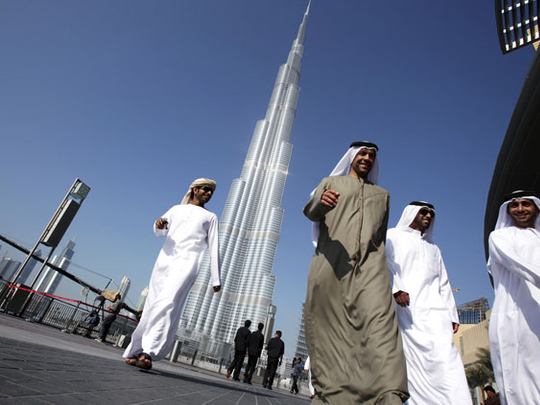
Dubai, Brussels: The Gulf Cooperation Council will not conduct free trade talks with potential partners worldwide until a study on the feasibility of these agreements is concluded, a GCC trade negotiator told Gulf News.
"The ministers [of trade from GCC countries] have decided not to enter into any free trade negotiations with any party until we see the results of the study," said Abdul Malik Al Hinai, undersecretary for economic affairs in Oman's Ministry of National Economy.
The study, begun approximately five months ago, is expected to be completed next March, he said.
A senior official of the European Commission who has been involved in negotiating a free trade agreement between the European Union and the GCC however said that EU Trade Commissioner Karel De Gucht may come to the Gulf by the end of this year to try to revive the talks.
"The ministers will decide whether to continue negotiations only after the study is concluded," said Al Hinai.
The free trade talks between the EU and Gulf started approximately two decades ago, and now hinge on the issue of export duties, on which neither side seems willing to budge.
Patience running out
Both sides have expressed frustration toward each other for not being more flexible, and have accused each other of not taking the agreement seriously.
The European Commission official said the trade commissioner was serious about the talks and that he planned to make that clear during his visit here, but suggested that the EU's patience with the Gulf was running out.
She questioned the real objective of the Gulf in refusing to give up the right to impose export duties.
The EU has conditioned signing the agreement on the Gulf states giving up their right to impose export duties in the future. The Gulf states have said that while they currently do not impose such duties, they want to retain the right to do so in the future.
GCC negotiators halted the talks when the EU introduced political clauses dealing with human rights and democratisation.
Both sides now say that the Gulf has made concessions on these clauses and they have been agreed upon "in principle".
Al Hinai said the Europeans "keep introducing news clauses… they were not flexible at all".
Despite talk of reviving the negotiations, however, officials on both sides have not expressed much optimism, saying it was time to look beyond the FTA in developing the relationship between the two blocs.
The GCC ambassador in Brussels, Amal Al Hamed, told Gulf News she had a mandate to further the relationship through the implementation of a new Joint Action Programme to implement the Gulf-EU Cooperation Agreement of 1988.
The 13-point programme aims at boosting cooperation from education and culture to the environment and trade.












